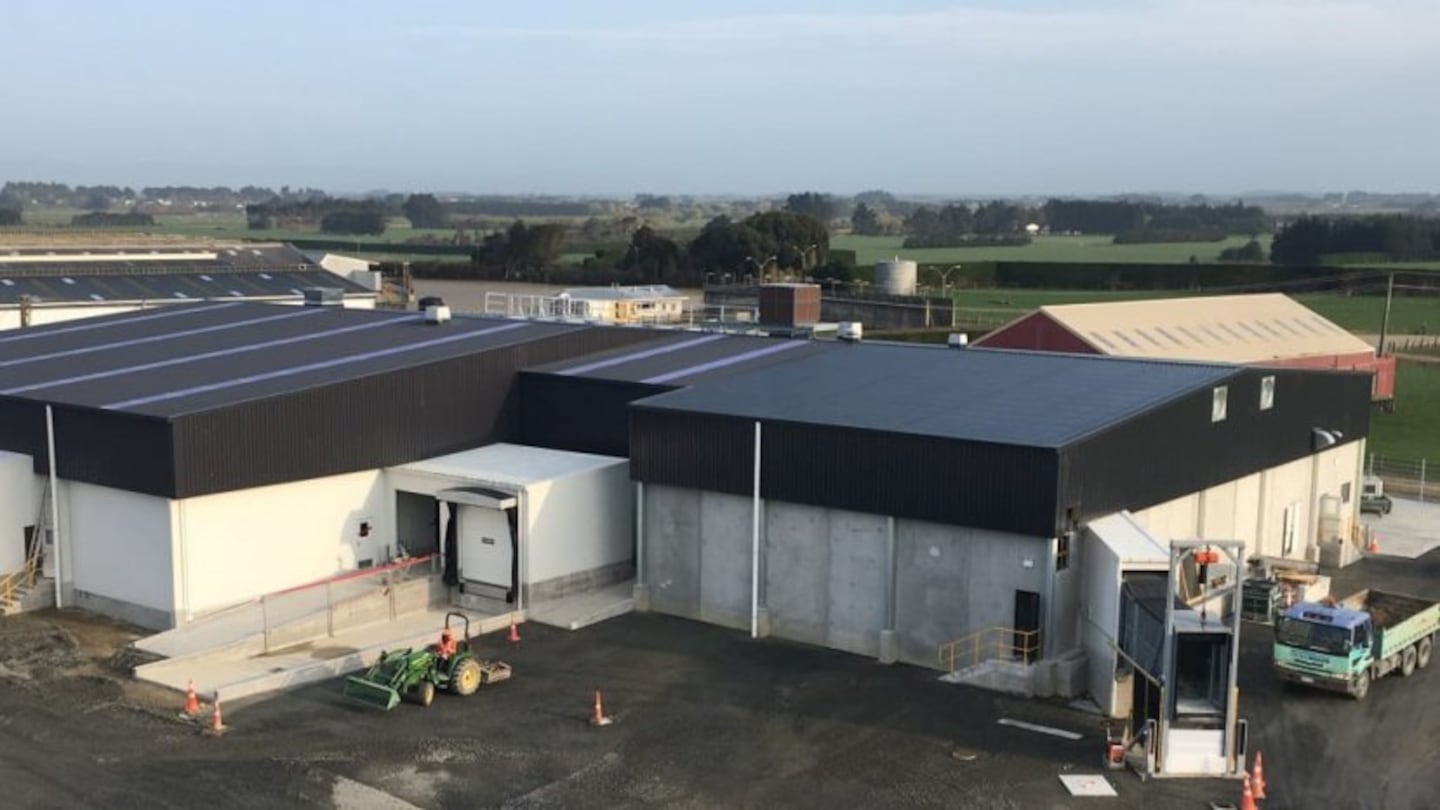Alliance Group venison processing plant, in Lorneville. Photo / Supplied / RNZ
Migrant workers with little to no meat-working skills have obtained jobs at a Southland freezing works under visas intended for skilled workers, the Meat Workers Union claims.
The union is calling for an investigation into whether the qualifications and experience of migrant workers at Alliance Group's Lorneville plant, near Invercargill, have been fabricated and if the problem is more widespread.
Alliance Group denies the claims. It said all its migrant workers had the baseline skills required by Immigration New Zealand.
Those coming here with an Accredited Employer Work Visa were meant to be qualified for the job they would be doing.
Immigration told RNZ the skills required were led by the employer.
But Meat Workers Union national secretary Daryl Carran said migrants who had been employed at Lorneville had little or no knife skills whatsoever when they arrived.
"They've come in as trained workers but they're certainly not trained - at all," Carran said.
"They've never ever been in the meat industry some of them before, or really handled knives in some cases too.
"One of them from the country of origin was a telephone technician. He's never worked in anything to do with handling knives."
Some workers had failed to reach the right skill level even after weeks of training and had been let go, Carran said.
Even more galling, they received inflated pay rates compared to existing staff, he said.
"Immigration would stipulate prior to February 28, $27.76 an hour. But these people have been paid $40-41 an hour, including allowances.
"Whereas our current workers, who've actually got more skills learning a higher skill - upskilling in other words - are actually getting a lot less."
Existing staff doing the same training as the supposedly skilled migrants had been earning about $25.50 per hour, Carran said.
Alliance said when it became aware of the union's concerns about the pay disparity, it fixed the problem.
But Carran said that was achieved by cutting the migrants' wages.
The situation at Lorneville only came to light after union members got chatting to the migrants about their work history and pay, he said.
There needed to be an investigation, Carran said.
"If you're going to recruit migrants from overseas as a recruiting agency, as a labour hire company, you need to make sure that the people you are employing are in fact skilled. It's up to them to do their due diligence on it. And it's certainly up to the company that's actually accepting their labour to do the due diligence as well," he said.
Carran feared the problem could be more widespread than Lorneville.
The industry needed migrant labour but it must also ensure people coming in have the right skills and existing staff were not getting the short end of the stick, he said.
Alliance - we depend on migrant labour to fill gap
Alliance Group declined to be interviewed but, in a statement, said while it preferred to hire local people, it relied on migrant workers to fill the gaps.
"Like all meat processing companies in New Zealand, Alliance has a labour shortage," a statement attributed to Alliance general manager of people and safety Chris Selbie said.
"Unemployment in Southland remains low and without sufficient labour, we cannot run our plants at the desired capacity for our farmers and provide our global customers with the products they require when they want them.
"While our preference is always to employ people from our local communities, in recent years we have had to recruit skilled people from overseas to make up the shortfall in numbers. Migrant workers represent a small proportion of our total workforce.
"All overseas workers are required to meet strict skills criteria and fulfill Immigration New Zealand requirements in order to obtain appropriate visas. This includes providing evidence of previous knife skills experience.
"The skilled migrants we engaged meet the baseline skills required by Immigration New Zealand.
"As with any skilled worker entering a processing environment in a new country, they need time to be inducted to new product specifications and local work practices.
"Meat processing companies, including Alliance, opting to bring in skilled workers from overseas are required by Immigration New Zealand to pay them at or above $27.76 per hour, more recently increased to $29.66 per hour for any visa applications after February 27, 2023.
"We were made aware of the union's concerns with regards to pay disparity and these have been addressed. There is currently no pay disparity between the people being trained and their equivalent workers."
No reports of unskilled workers - Immigration NZ
Immigration New Zealand general manager Richard Owen said it had not received any claims of unskilled workers at the Lorneville plant.
"Before an accredited employer can offer a role, a job check needs to be completed which helps to ensure migrants recruited into New Zealand on an AEWV are mostly filling higher-skilled roles," he said.
"Job checks ensure that a worker has the qualifications, work experience, skills and other specifications as listed by the employer, as the minimum requirements for the job.
"To obtain and then retain accreditation under the AEWV category, employers and key people in their business must comply with immigration and employment law.
"We must be satisfied that an applicant is suitably qualified to do the job they have been offered. We take any visa compliance concerns seriously.
"Immigration New Zealand (INZ) has not received any claims of unskilled workers at the Alliance's Lorneville site being hired on an AEWV, therefore, no investigation has been undertaken.
"Investigations are considered on a case-by-case basis. If it was found that visas, under this or any category, were granted based on incorrect information submitted to INZ, employers risk losing their accreditation, having their accreditation declined or being prosecuted under the Immigration Act 2009. Individuals could also face deportation."

